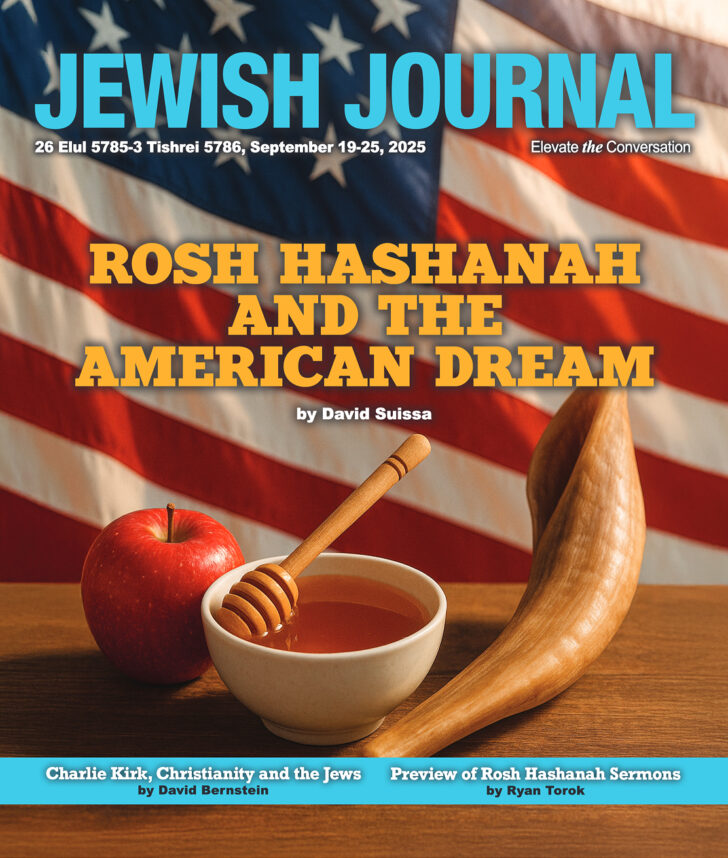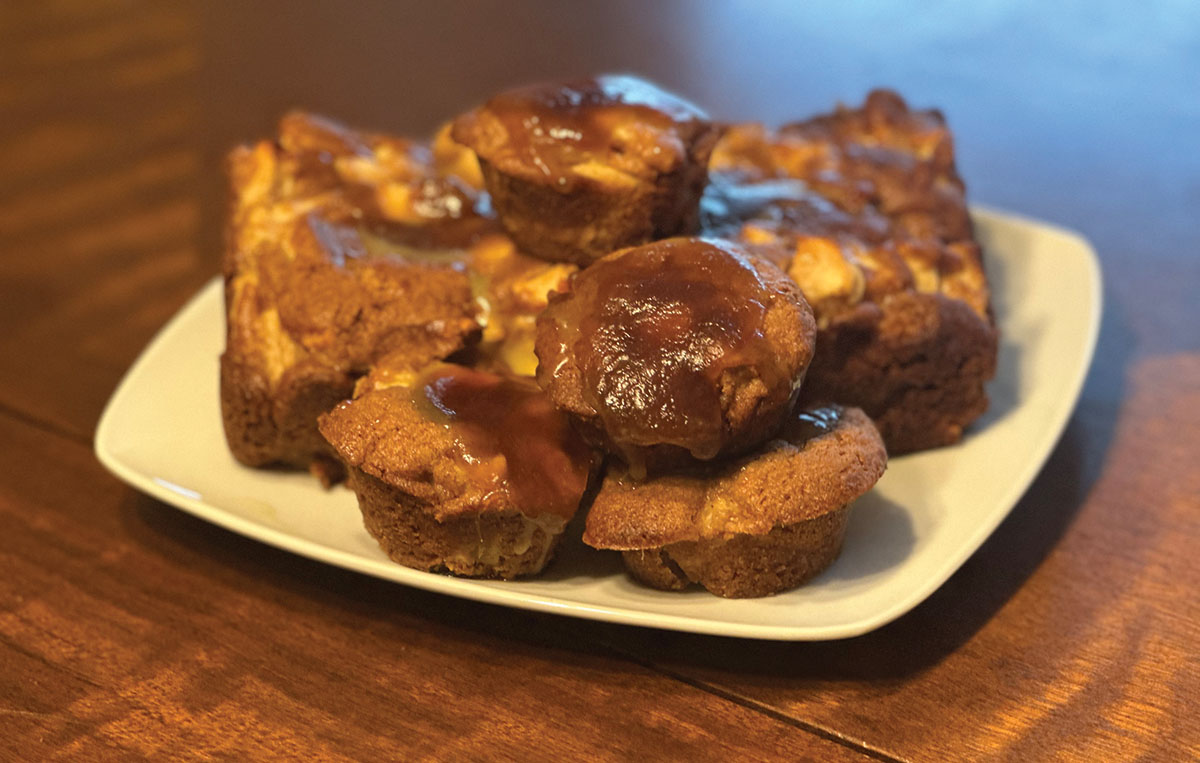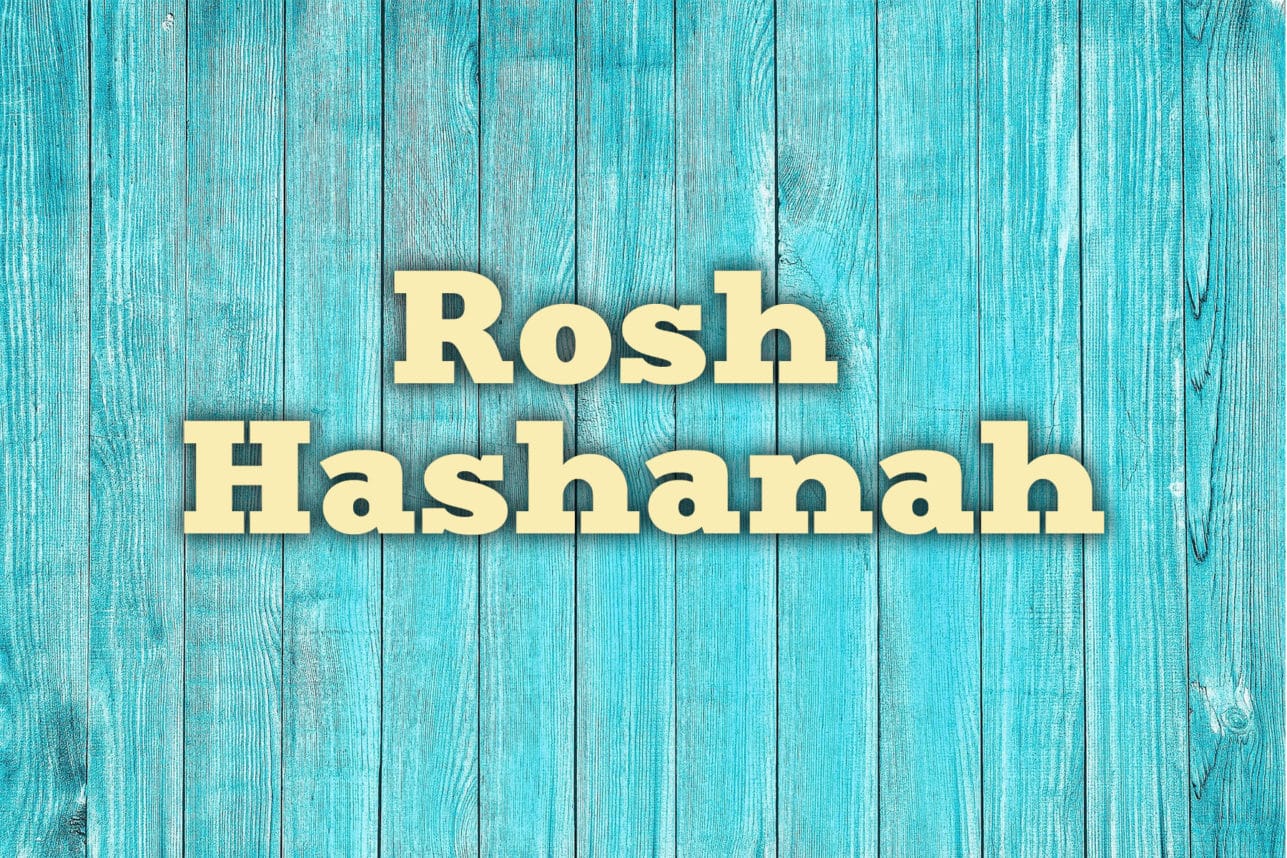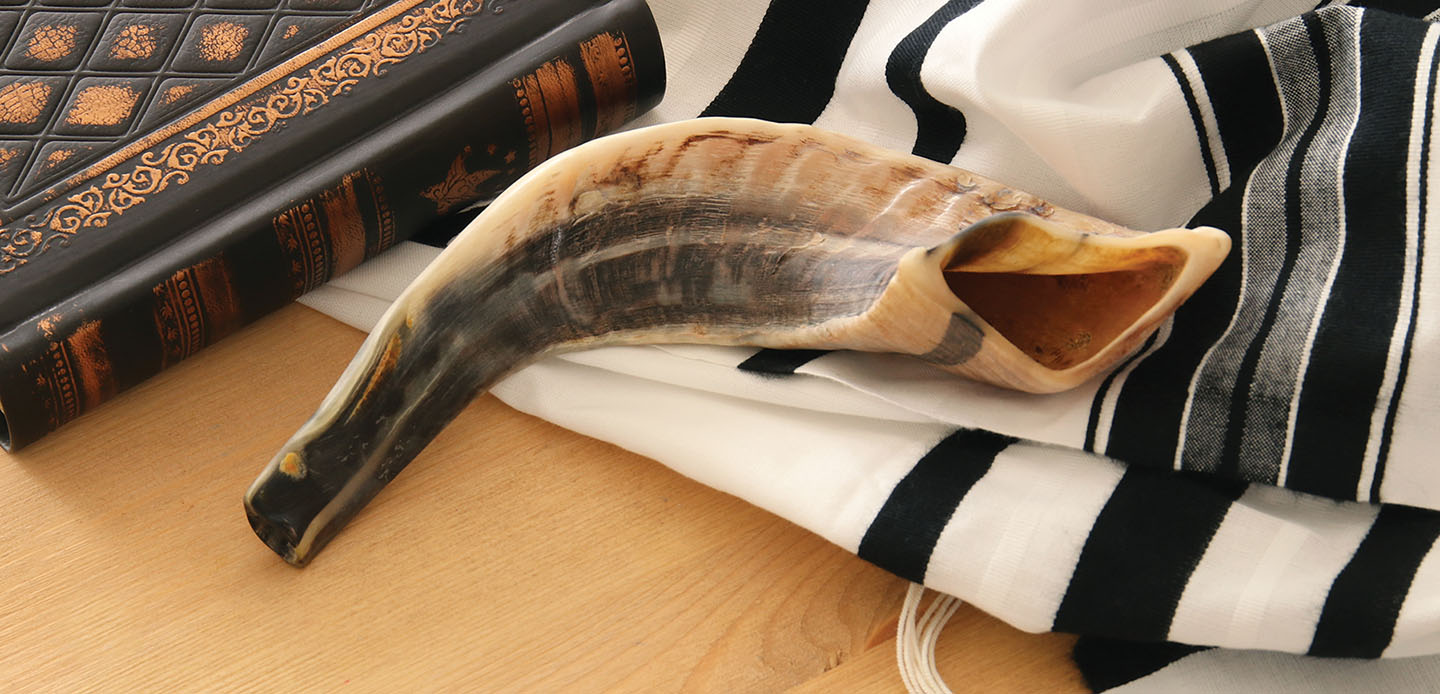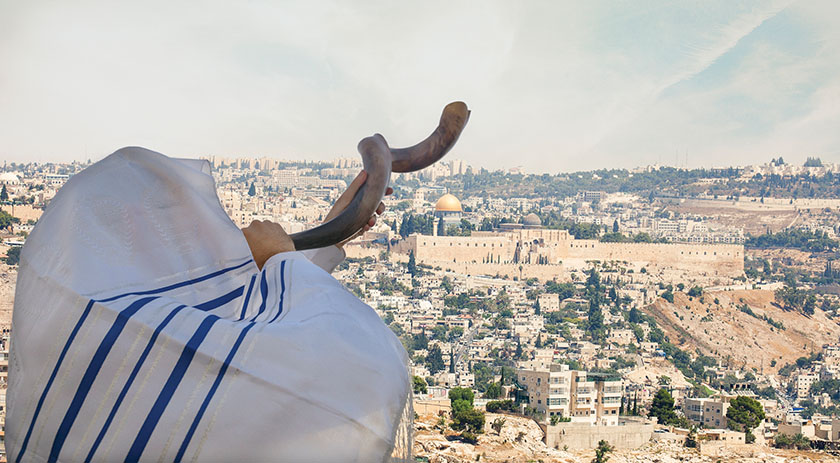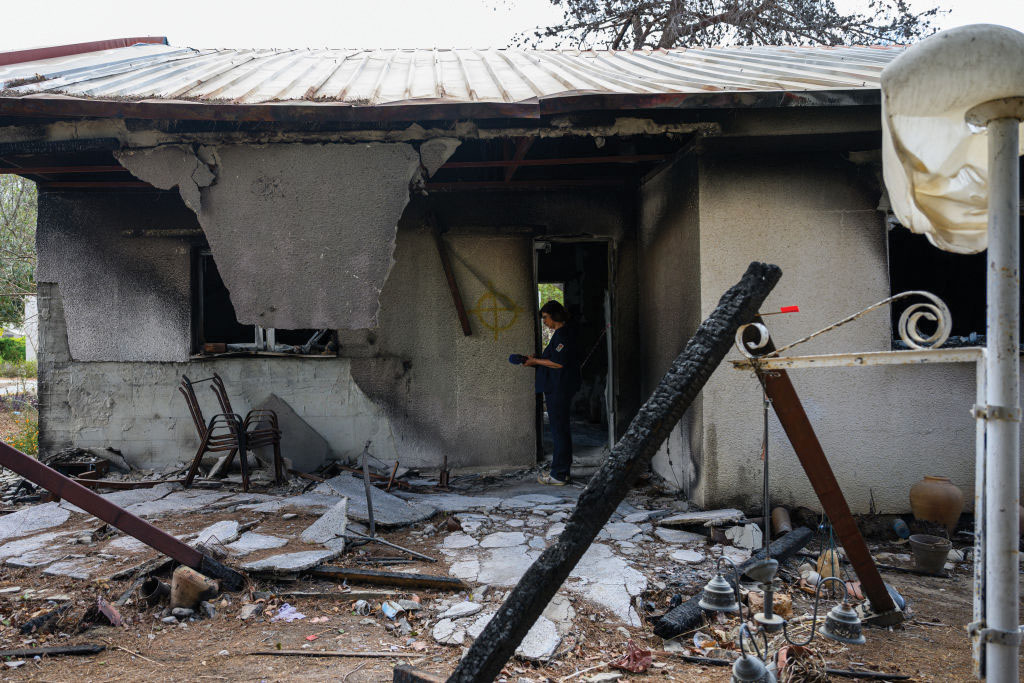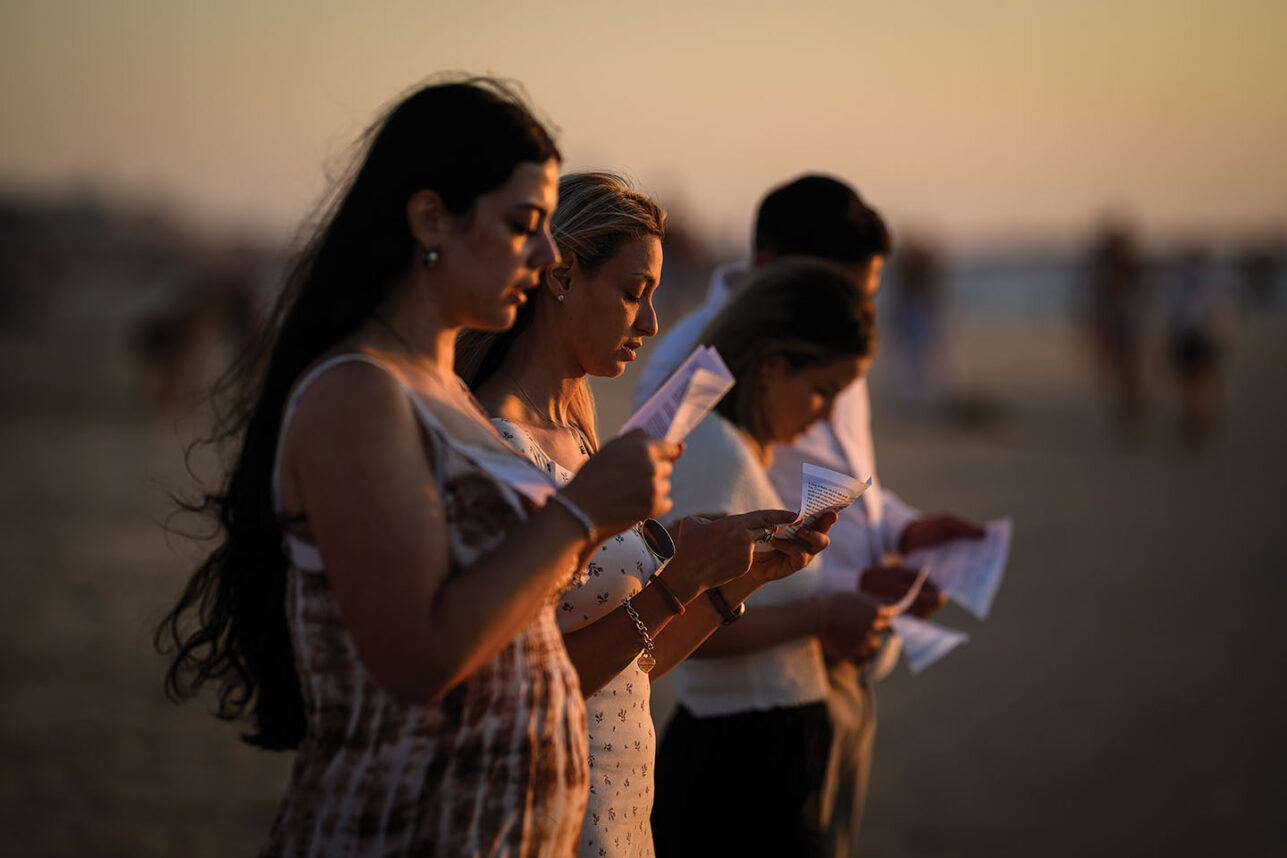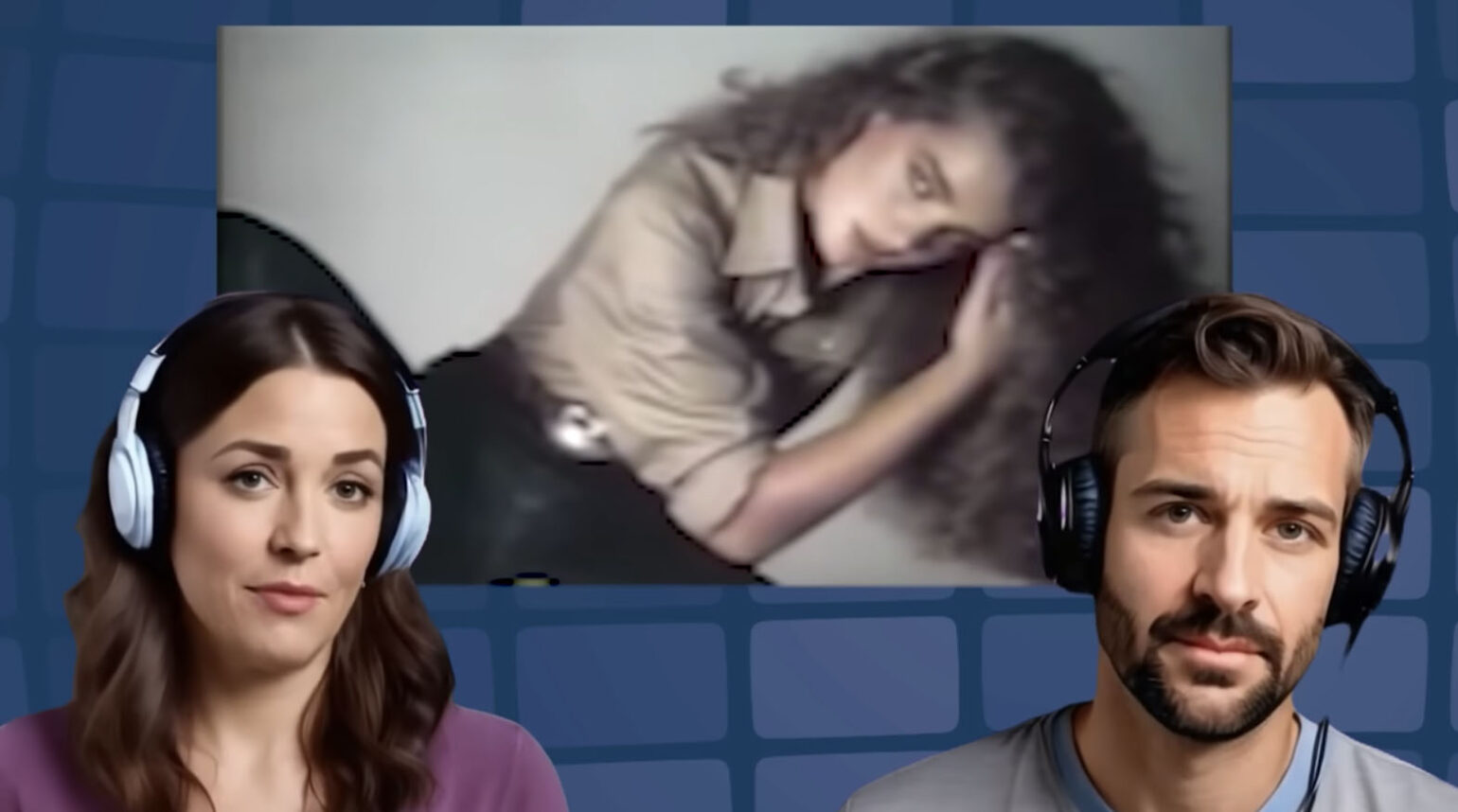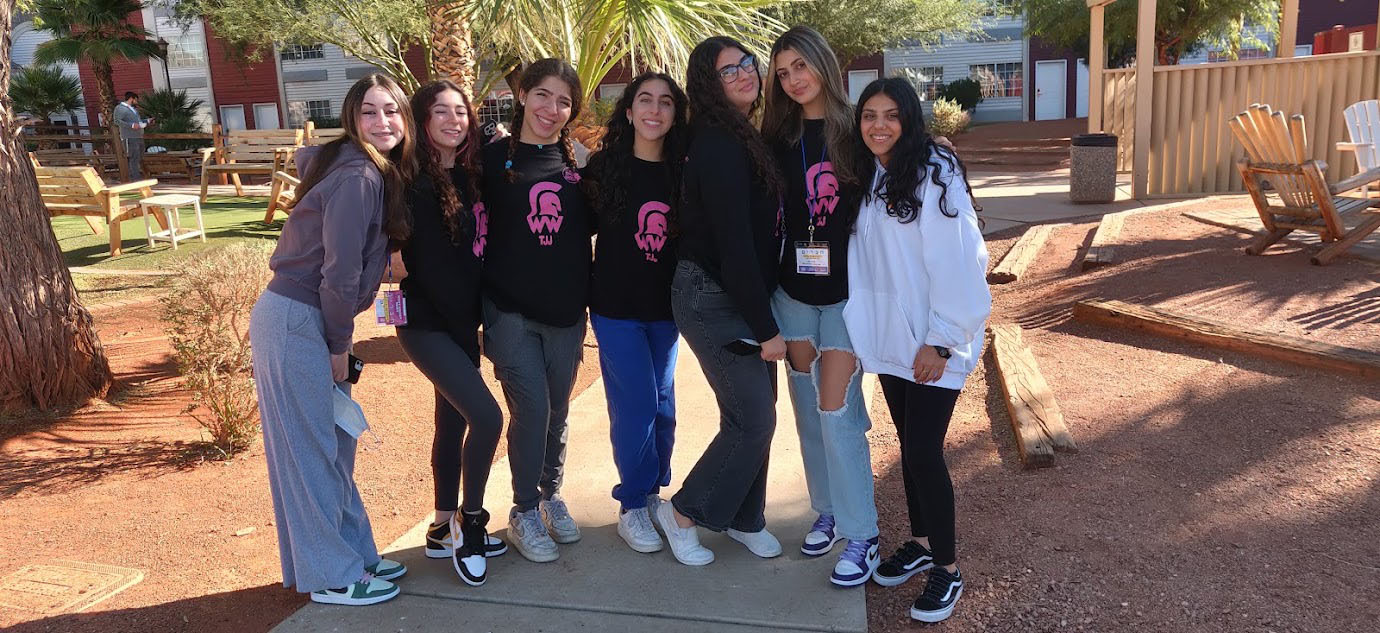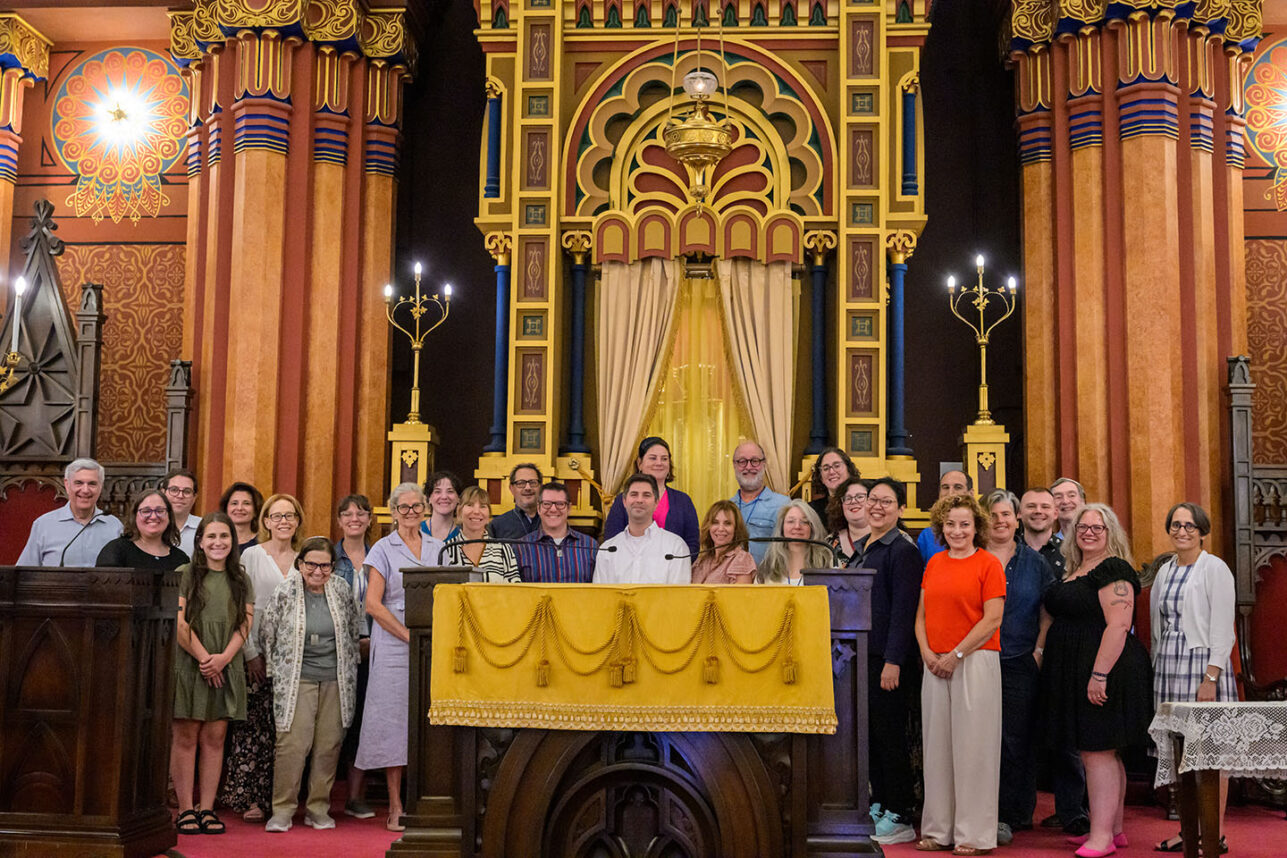Thousands of Israelis, foreigners and stoked-as-hell Birthright kids swarmed Rothschild Boulevard last night for the 10th anniversary of Tel Aviv's “White Night,” a non-religious holiday that celebrates ” target=”_blank”>the crazed and confusing followers of Rabbi Nachman of Breslov.
, <a href=) ” target=”_blank”>braking it inconveniently in the middle of an intersection and jumping out to dance on the roof and blast electro remixes of traditional Jewish songs. Their philosophy, from what I've gathered, is that happiness is the ultimate salvation and that singing, dancing and otherwise going completely nuts can bring them closer to God. I had first encountered a mob of them on Purim, Israel's version of Halloween, when we engaged in a sweaty dance-off at a small club along Rothschild. Like most foreigners after their initial run-in with the Na Nach — who look just like the Hasids of storybooks, with woven skullcaps and two long ringlets sticking out — I assumed I was having my first Holy Land hallucination and dismissed it the next morning as some poor kid's bar mitzvah gone cray.
” target=”_blank”>braking it inconveniently in the middle of an intersection and jumping out to dance on the roof and blast electro remixes of traditional Jewish songs. Their philosophy, from what I've gathered, is that happiness is the ultimate salvation and that singing, dancing and otherwise going completely nuts can bring them closer to God. I had first encountered a mob of them on Purim, Israel's version of Halloween, when we engaged in a sweaty dance-off at a small club along Rothschild. Like most foreigners after their initial run-in with the Na Nach — who look just like the Hasids of storybooks, with woven skullcaps and two long ringlets sticking out — I assumed I was having my first Holy Land hallucination and dismissed it the next morning as some poor kid's bar mitzvah gone cray.
The people of White Night, their eyes shining with booze and uppers, looked similarly incredulous. They climbed onto street signs and each other's shoulders to get a better view of the writhing Na Nach, led by a Hasid blowing into a shofar (a sheep's horn traditionally used on Rash HaShanah) and calling himself “DJ Give Tzedakah” (the Hebrew word for charity). One drunkard even tried to climb up onto the van to dance with DJ Give Tzedakah, but a few Na Nach on the ground quickly cut in, like bouncers at a Rihanna concert.
“They don't know what they are doing,” said a Na Nach member of the street revelers. “But we pull them to us.”
 ” target=”_blank”>Jewish Daily Forward called this new generation of religious sinners “Israel’s hottest new Hasidic sect”:
” target=”_blank”>Jewish Daily Forward called this new generation of religious sinners “Israel’s hottest new Hasidic sect”:
They are known as the Na Nach — a recently emerged subgroup of the 200-year-old Breslover Hasidic sect. Like other Breslover Hasidim, they follow the teachings of Rebbe Nachman of Breslov, a kabbalist mystic who lived 200 years ago in what is today Ukraine. More established Breslov groups were once seen as an eccentric, vaguely countercultural element in the Orthodox world. But members of the Na Nach sect now stand out as the new radicals, as the older tradition of Nachman study assumes a newfound respectability within the ultra-Orthodox world.
“[Na Nach] are seen as sort of an embarrassment in Israeli society, and held up as a circus sideshow,” said Shaul Magid, a professor of Jewish studies at Indiana University and an expert on Hasidism.
But they're also becoming somewhat of a beloved local party trick in Tel Aviv — because in the end, it's hard to hate a bunch of bouncy, smiley Jews on acid.








